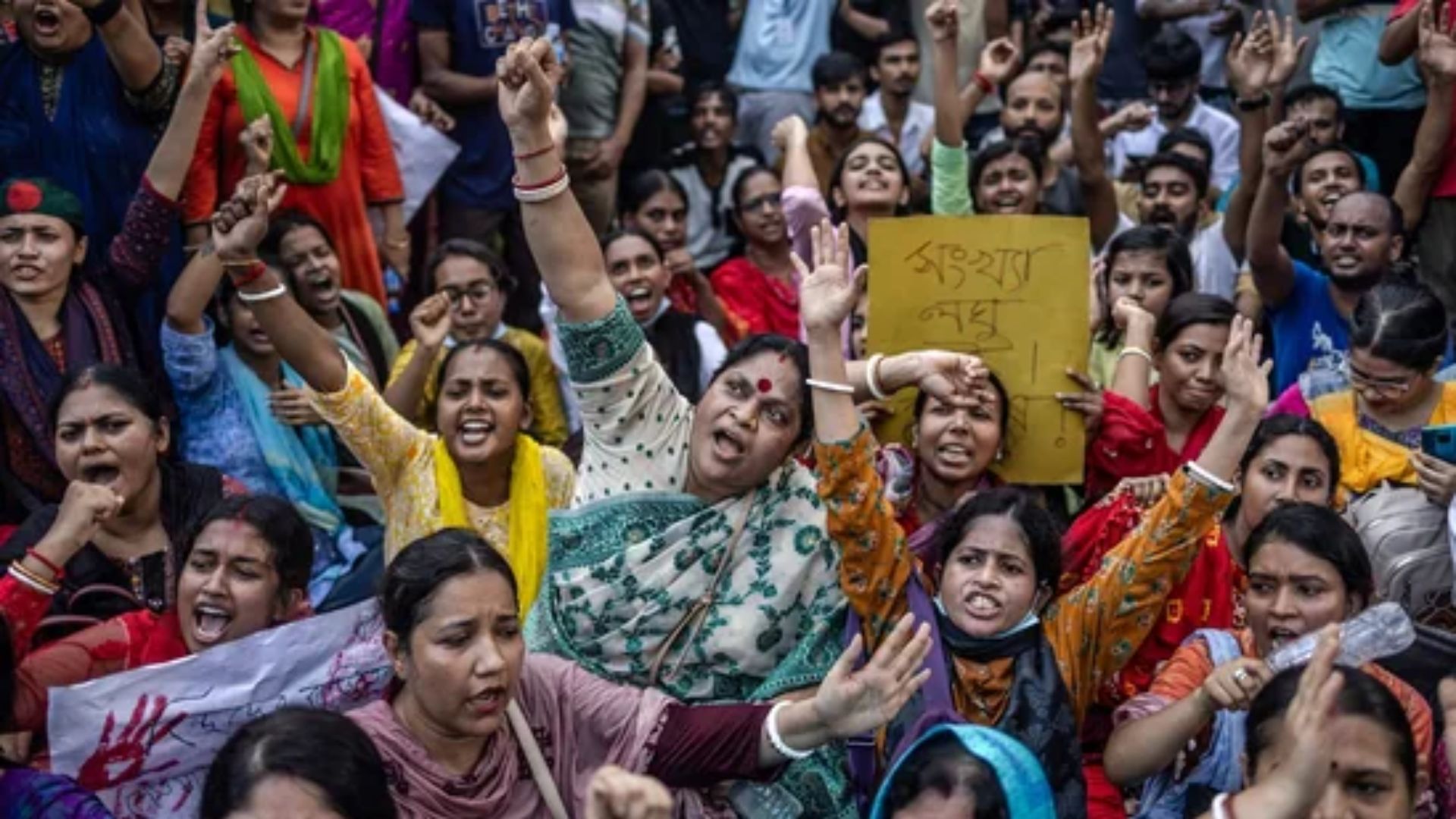Over the last three days, Bangladesh has witnessed intense violence and unrest, resulting in at least 232 deaths, as reported by The Dhaka Tribune. These events unfolded following Prime Minister Sheikh Hasina’s resignation on August 5 and her subsequent flight to India, amid widespread protests demanding her removal from office.
The unrest, which has been escalating for three weeks, led to the collapse of Hasina’s government. An interim administration, now led by Nobel Laureate Muhammad Yunus, has taken control of the country. According to Reuters, the overall death toll from the ongoing violence has reached 469.
Local media reports highlight the severe persecution of minorities, particularly in the wake of the ongoing violence. This has driven many Bangladeshis to attempt illegal crossings into India out of fear for their safety. On Thursday, Prothom Alo reported that most of the 232 recent deaths occurred on Tuesday, with some victims succumbing to their injuries while receiving medical treatment.
Bangladesh’s main opposition party, the Bangladesh Nationalist Party (BNP), has demanded that Sheikh Hasina face criminal charges in the country. The BNP also warned that India could harm its relationship with Bangladesh by providing shelter to the former leader, as reported by Bloomberg.
Key Developments in Bangladesh’s Political Crisis:
During the quota and anti-discrimination student movements from July 16 to August 4, a total of 328 deaths were reported, bringing the total number of fatalities over the past 23 days to 560.
Dhaka Medical College Hospital received 10 bodies from recent clashes on Monday, including six police officers and one member of the Ansar force.
On Tuesday, six prisoners were killed while attempting to escape from Kashimpur High Security Prison in Gazipur, resulting in a deadly confrontation with prison guards. On Wednesday, three more people died while receiving treatment in Savar, Dhaka.
In Gagnibari, Meherpur district, a house attack on Tuesday night led to the death of Naharul Islam, a member of the BNP, and left seven others injured.
On Friday, hundreds of people in Dhaka protested against the violence targeting Bangladesh’s Hindu minority following Hasina’s departure. A school teacher was killed, and at least 45 others were injured in these attacks on Hindu homes, businesses, and temples.
Protesters in Dhaka, some carrying signs advocating for the protection of minorities, blocked a major intersection, chanting “Who are we, Bengali Bengali,” and calling for peace.
Hindus, who make up about 8% of Bangladesh’s 170 million population, have traditionally supported Sheikh Hasina’s Awami League party. This party has become the focus of public anger following the violent clashes between anti-quota protesters and security forces last month.
Amir Khosru Mahmud Chowdhury, a senior BNP leader, stated that Sheikh Hasina faces serious allegations, including murder, forced disappearance, money laundering, and corruption, and must be held accountable.
An interim government led by Nobel Prize-winning economist Muhammad Yunus was established in Bangladesh on Thursday. According to the constitution, an election must be called within 90 days, though no specific date has been announced by Yunus, the military backing the interim government, or the president.
India’s role in sheltering Sheikh Hasina could strain relations with the interim government in Dhaka, especially as Prime Minister Narendra Modi has supported Hasina over the years, despite growing concerns about human rights abuses and political repression in Bangladesh.







